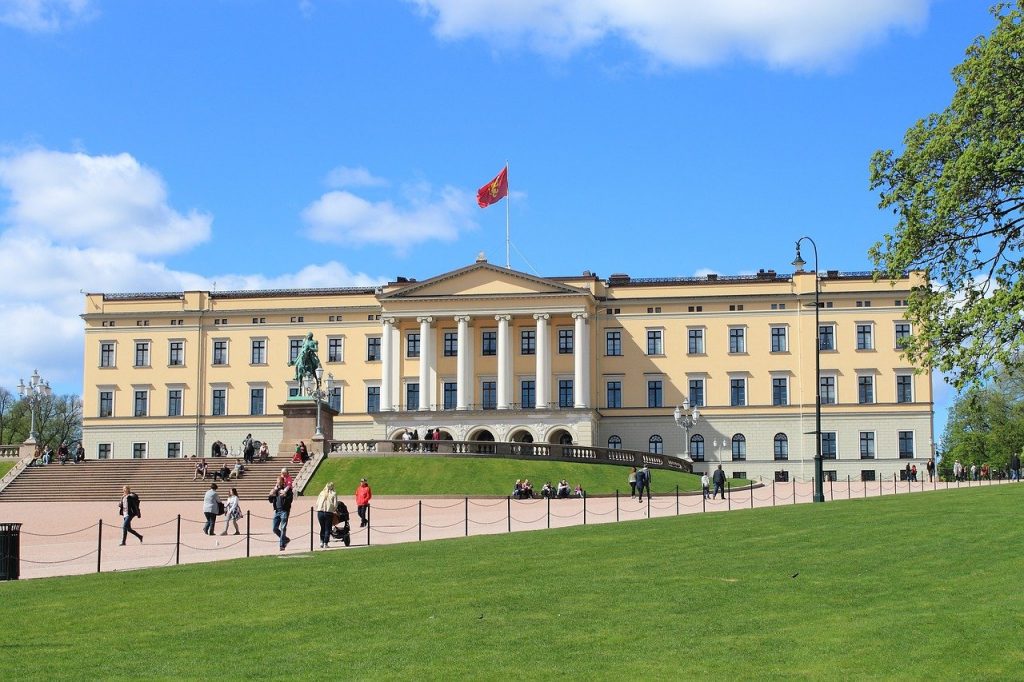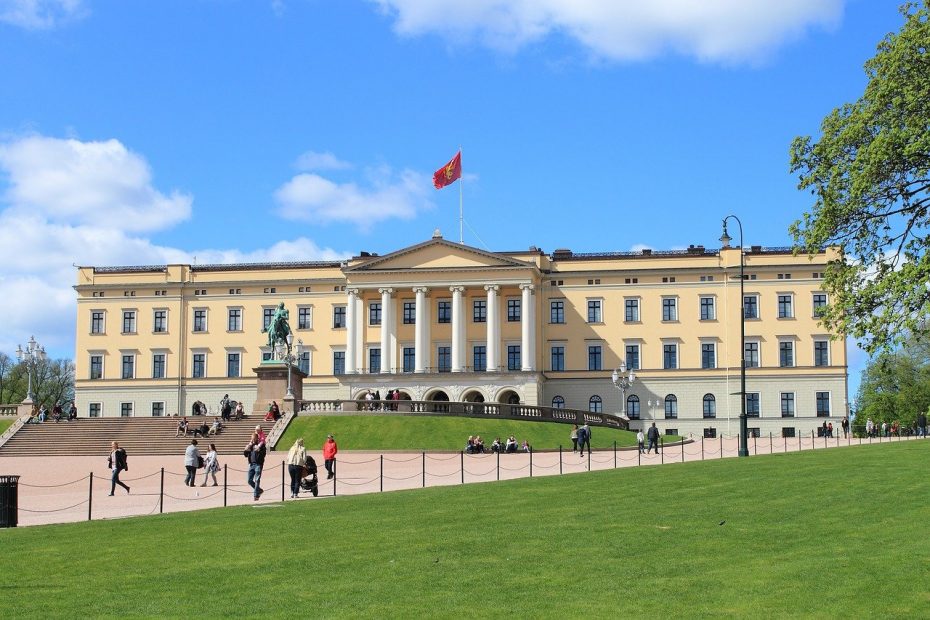Do you wish to study abroad in Norway?
Norway is a country blessed with a wealth of natural resources, and as a result, it has been able to maintain a significantly higher level of life than other countries with comparable populations. This is due to its thriving economy, which is a result of its natural resources and how the government manages them. Norway has been one of the fastest-growing countries Regarding foreign education during the previous decade.
For students, the country offers the most accommodating visa policies. It is also a country that offers excellent rewards to students even after they have completed their courses. The country has also experienced significant progress regarding student housing and the overall student experience. If you wish to study in Norway, this blog will provide you with an overview of the universities, study visa requirements, and other information.

An Overview of Norway
Norway is a Northern European country bordered by Sweden, Finland, and Russia. It has a population of 5 million people and is Europe’s second least densely populated country. It is a fantastic place to study. It is one of the world’s top countries regarding the quality of life, education, health care, economic competitiveness, and democracy. Because the country has a good level of life, it attracts students from all over the world.
Norway has a highly developed economy and one of the world’s greatest living standards. It is ranked first in the United Nations’ Human Development Index for 2015. It also rates high on well-known indices such as the World Bank’s Doing Business index and Transparency International’s Corruption Perceptions Index. The Norwegian economy is mostly built on natural resources such as oil and gas (the country has some of Europe’s greatest petroleum reserves) and fishing (the country’s coastline areas are among Europe’s best).
Reasons You Should Study Abroad in Norway
When you study abroad, you are not only earning a degree but also immersing yourself in a new culture. Studying in Norway is a once-in-a-lifetime opportunity.
- Norway is one of the world’s happiest countries.
- You will be exposed to a culture that is distinct from your own.
- You can study Norwegian and use it in everyday situations with the locals.
- Norway boasts some of the most magnificent wildlife and landscapes you’ll ever see, which you may experience with companions on a hiking or skiing trip!
- The people are kind and pleasant, so you’ll never miss home!
- You will be able to build leadership skills by participating in student clubs or volunteering at local organizations in need of assistance with their initiatives!
- Studying abroad is an excellent method to enhance your resume for potential companies and to make connections in your subject of study!
Norway Education System
The education system in Norway is one of the best in the world, and the country is routinely regarded as one of the best places to study. Norway provides its residents with free education, with a focus on vocational training. There are no tuition expenses at any level of the school, and students are free to pursue their interests. The Norwegian educational system is organized into three levels: lower secondary school (grades 10-12); upper secondary school (grades 13-15), and postsecondary education (university). The first two levels of education are required, but higher studies are optional.
All public higher education in Norway is funded by the Norwegian government, including bachelor’s degrees, master’s degrees, PhDs, and other postgraduate programs. Currently, Norway has 9 universities, 8 university colleges, and 5 state-owned scientific colleges. Norway also has a sizable number of privately run universities that get government financing.
The entirety of the recognized institutions and/or programs make up the Norwegian higher education system. All higher education institutions, with the exception of a few private university colleges, are government-run. Norway has been adhering to the Bologna process’ goals for higher education in Europe since 2003. Implementing a 3 + 2 + 3 degree system with a Bachelor’s, Masters, and PhD structure that adheres to European norms has been crucial.
The new degree system has made it simpler for international students to get a degree after finishing all or some of their studies in Norway, in order to get their credentials recognized internationally. The old university college two-year degree (college candidate), the five-year consecutive master’s degree, the six-year professional program, the one- to one-and-a-half-year master’s degree, the four-year bachelor’s degree in performing music and performing arts, and the four-year teacher preparation program are exceptions.
All institutions of higher learning, and universities in particular, are charged with doing fundamental research as well as training new researchers, primarily through graduate-level and doctoral degree programs. The rights to self-accreditation are the major distinctions between the various types of higher education institutions. While university schools must request for external certification for their study programs, universities can provide study programs without it.
Foreign students wishing to enrol in Norwegian universities for Bachelor’s degree must possess credentials at least equal to an upper secondary general education. There might be additional requirements for some nations. Additionally, students can contact Norwegian embassies or consulates to learn more about visa requirements. Prior to traveling to Norway, they need submit a residency permit application.
To obtain a residential permit, financial guarantee is usually needed for a residence permit. Students should be proficient in Norwegian (norsk for utlendinger, trinn 3. minimum mark required). Bergenstesten, high school) with a minimum mark of 500 and English tests like the TOEFL or IELTS (Minimum score of 500 in TOEFL and 5.0 points in IELTS).
How Much Does it Cost to Study in Norway?
Norway has a high cost of living, but it also has a high quality of life. The average cost of a semester of study in Norway for a student is $14,000. This includes tuition, housing, and food. It excludes travel and other personal expenses. Only the student union charge, which ranges from 30 to 60 euros every semester, must be paid in full. Tuition at private universities ranges from 7,000 to 9,000 EUR per year for bachelor’s programs. Master’s programs cost between 9,000 and 19,000 euros per year.
What are the Requirements to Study in Norway?
Regarding life quality, education is one of the most significant things. Regarding education, Norway is one of the top countries in the world. The following are the prerequisites for studying in Norway:
- If you are a citizen of an EU/EEA nation or Switzerland, you are free to study in Norway.
- If you are a citizen of another nation, you must meet specific requirements before you can study in Norway.
- You must have a high school diploma or equivalent from your native country to study in Norway. You will also need a residency permit and a valid passport to study in Norway. To study in Norway, you must be fluent in Norwegian or learn it as quickly as possible.
- After three years of lawful residency in Norway, a person may be given permanent residence or Norwegian citizenship.
Best Institutions in Norway
Norway is a popular study abroad location in Europe. The awards are based on the opinions of nearly 7,000 students who contributed to the largest database of foreign student experiences in the world. This indicates that Norway is a well known study destination in Europe. It also has a wide range of educational options and employment in the arts, technology, and the petroleum sector. Norway is not only a study destination, but it’s also a naturalist’s dream with its woods, mountains, and, of course, fjords.You will be given an overview of Norway’s top ten best institutions. You’ll learn about them, what they have to offer, and how they rank.

1. University of Oslo
Oslo University is a public research university in Oslo, Norway. It was founded in 1811 and is Norway’s oldest university, as well as one of Scandinavia’s largest educational and research institutions. The University has 29,000 students and 7,000 employees, and it offers a wide range of academic degrees in a variety of subjects. The University was established in 1811 as an alternative to the old Royal Frederick University, which had been established two years earlier in Christiania (now Oslo). The new university was established as part of a larger push to create institutions throughout Norway; it was also the first university to be named after a Norwegian patron.
2. Norwegian University of Life Sciences
The Norwegian University of Life Sciences is a Norwegian university. It is situated in Åo, close to Oslo. The Norwegian University of Life Sciences was founded in 1814 and is one of the world’s oldest agricultural universities. Natural sciences, social sciences and humanities, economics, law, and education are all available at the institution. The university has about 10,000 undergraduates and about 1,500 postgraduate students enrolled. The Norwegian University of Life Sciences is divided into four faculties: Agriculture Faculty, Science Faculty, Social Sciences and Humanities Faculty, Law Faculty, and Education Faculty
3. University of Bergen
Bergen University is a public research university in Bergen, Norway. Regarding the student population, it is the second-largest university in Norway. The institution has 18,000 students and 3,000 employees, and its total revenue is NOK 6 billion. King Haakon VII and his son Olav V established “Det (kongelige) Frederiks Universitet I Bergen” in 1946. The main campus of the University is located in (Tyholt) in the city of (Bjrvika), previously Aker (Brygge). The university has seven other campuses located throughout the city.
4. Nord University
Nord University is a Norwegian university. It was founded in 1968 and is one of Norway’s largest higher education institutions. There are three campuses for the university: one in Bod, one in Harstad, and one in Narvik. Lillehammer is home to the main campus, which make up the faculties of law, economics as well as social sciences. Nord University provides about 140 full-time and part-time degree programs, as well as over 600 courses and seminars to both Norwegian and international students.
5. University of Stavanger
The University of Stavanger is a Norwegian public university. It was founded in 2007, and it is divided into four faculties: the Faculty of Business and Social Sciences, the Faculty of Health Sciences, the Faculty of Humanities, and the Faculty of Science and Technology. The University offers bachelor’s degrees in many academic fields, master’s degrees in the faculties, and PhD programs. In collaboration with other Norwegian universities, the university also provides several professional master’s degrees. More than 18,000 students are enrolled at the University.
6. Norwegian School of Veterinary Science
The Norwegian School of Veterinary Science (NVH), established in 1859, is a state-run higher education institution for veterinarians, veterinary nurses, and other animal health professionals. Bachelor’s degrees in Veterinary Medicine and Veterinary Nursing, Master’s degrees in Animal Welfare and Animal Health, and PhDs in Veterinary Medicine are all available at the NVH.
7. University of Agder
The University of Agder is a Norwegian public university located in Kristiansand. The institution, formerly known as Agder University College, was founded in 1996. The University of Agder provides undergraduate, postgraduate, and doctoral programs. Short courses, open education, and online courses are also available. The University of Agder (UiA) has campuses in Kristiansand and Grimstad and is located near the southernmost point of Norway. Over 13,000 students attend the university, and there are about 1500 academic and administrative staff members. Although it is one of Norway’s newest institutions, it has existed since 1839.
8. Norwegian School of Economics
Bergen, Norway is home to the Norwegian School of Economics, a business school. It was founded in 1936 and is one of the major institutions for economics and business studies in the Nordic region, as well as one of the top 100 universities in the world for economics. Undergraduate degrees are available at (NHH) in international business administration, finance, economics, and marketing management. It also provides graduate degrees in international business administration, finance, and economics, as well as PhDs in all three disciplines. Macroeconomics, microeconomics, financial markets, and behavioural science are among the research fields of the school.
9. Bergen University College
Bergen University College is a private higher education school in Norway. It was formed in 2004 and currently has over 7000 students. The college has undergraduate, graduate, and postgraduate programs available in both Norwegian and English. Bergen University College places a major emphasis on research-based instruction and learning. The university is also committed to delivering high-quality education to adults who wish to continue their education after finishing their formal education at the high school or college level.
10. University of South-Eastern Norway
The Institution of South-Eastern Norway is a state university in Norway that was founded in 1996. It has campuses in Kristiansand, Arendal, and Stavanger (Lillesand). The institution confers bachelor’s, master’s, and doctorate degrees in a variety of fields of study. It is one of Norway’s major higher education institutions, with about 16,000 students and 1,600 personnel (full-time equivalents).
University Admissions Process in Norway
The Norwegian university admissions process consists of three steps:
- Applicants must first pass the National Tests in Mathematics and the Norwegian Language. The tests are available in two difficulty levels, with Level 1 being the easiest.
- In the second step, applicants are rated based on their test scores and admitted to one of several university colleges that provide undergraduate degrees.
- Applicants who were not admitted to any institution can apply for admission to an individual program at a college that offers it in the third phase.
- The third step in the admissions process is known as “admission by application” or “admission by special application.”
- Do Universities in Norway offer Scholarships?
The Norwegian Ministry of Education and Research has recently launched new international student scholarships. These scholarships are accessible to all students enrolled at a Norwegian university. The scholarship is worth €4,000 (about $5,000) per year. The scholarship is awarded to students based on merit, and it will be given to the best applicants from a list of candidates pre-selected by the university. To be considered for this award, all applicants must submit their applications by the end of January. If you want to apply for this scholarship, you should contact your preferred university and inquire about their application process and deadlines.
Student Visa Requirements For Norway
Norway is a desirable location for international students due to its welcoming environment, inexpensive tuition prices, and high level of education. A student visa is required to study in Norway. To be eligible for a student visa, you must meet the following criteria:
- When applying for the visa, you must be at least 18 years old.
- You must have a current passport.
- You should be able to demonstrate that you have enough funds to live in Norway for the duration of your studies
- You should have no criminal record and should not be wanted by authorities in your native country.
- You should not endanger public order and security in Norway.
Post Study Opportunities in Norway
The Norwegian government is dedicated to investing in people’s well-being, health care, education, and social security. Norway has the highest proportion of highly educated citizens of any country on the planet. It provides fantastic options for overseas students to study in Norway after finishing high school or university. There are numerous post-study programs available to overseas students, including:
- Master’s degree programs
- PhD programs
- Doctoral degree programs
- Postgraduate studies at Norwegian universities
The Wrap Up
Norway is a fantastic destination for International students to study. The school system is regarded highly, and the country has much to offer its students. We hope you enjoy studying abroad in Norway and have good testimonies to share when you begin your study in the most sought after country in Europe.
If you are considering studying in Norway, we hope this article would be helpful!
